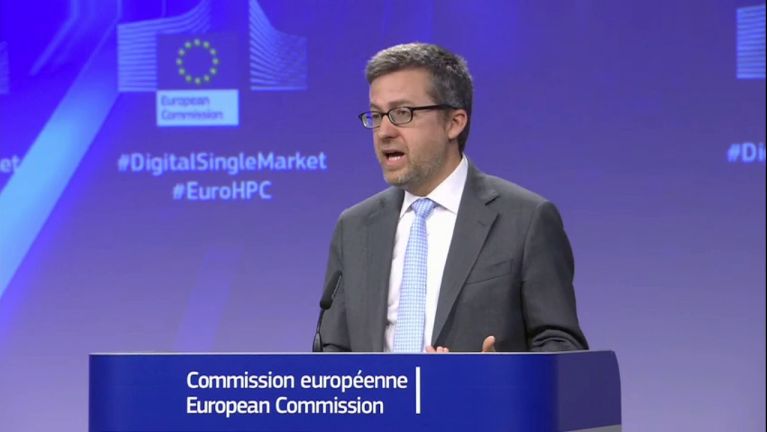Upgrade for Europe’s high tech
The EU is investing one billion Euros in a project for supercomputers. With good reason.

Irrespective of whether the topic is cybersecurity, research on climate change, medicine or renewable energy, gigantic data volumes can only be successfully mastered using a supercomputer. The EU has now taken an important step and bundled resources from 25 European countries for the EuroHPC project, with the objective of doing something that one country on its own would never be able to achieve.
So what are supercomputers?
High-performance computing, in short HPC, involves computer processing that is so complex it cannot be mastered using the customary all-purpose computers. These tools are called supercomputers and by 2021 they are expected to be able to compute on an exa scale, meaning one quintillion computer operations per second.
The objectives of EuroHPC
At present, EU industry relies on more than 33 percent of the world’s supercomputer processing capacity, but only provides five percent of it. This is set to change with the EuroHPC (European High Performance Computing) project. The plan is to set up two computers at the pre-exa scale and at least two in the medium-size range. As many users as possible will be granted access to the computers. Moreover, the intention is by 2022-23 to have developed European exa-scale supercomputers and the first European microprocessor generation with low power consumption ratings.
Dieses YouTube-Video kann in einem neuen Tab abgespielt werden
YouTube öffnenThird party content
We use YouTube to embed content that may collect data about your activity. Please review the details and accept the service to see this content.
Open consent formEuroHPC is a joint project
No less than one billion Euros will be injected into the EuroHPC project by 2020. Of that figure, just under half will come from the EU budget, with the EU member states and Norway providing the remainder. A total of 25 countries are participating in the project. The “Joint Undertaking” (JU) will be headquartered in Luxembourg.
No country, no university, no company on its own could do what we are doing today.
High-performance computer for research and innovation
At present, the world’s fastest supercomputer is located in the USA. China is also in the top rankings. Germany’s “Juwels Module 1” at the research centre in Jülich places 23rd on the list of world supercomputers. It is booked out long in advance as scientists rely on the HPC for the following types of research:
- Climate research: Predicting natural disasters and simulating climate change.
- Energy: Designing renewable energy facilities and testing new materials for solar cells.
- Health: Researching the dynamism of biomolecules and proteins in human cells in the battle against auto-immune diseases, cancer or diabetes.
- Personalised medicine: Analysis of genes and environmental factors.
- Cybersecurity: Development of highly complex encryption technologies and defence mechanisms against cyberattacks.
- Urban planning: Efficient management of traffic infrastructures.
- Self-driving vehicles: Data exchange with traffic management systems and real-time synchronisation with the servers.
- Agriculture: Optimisation of food production.
For these and other research tasks, experts require high-performance computers, which can only be realised as joint undertakings. “No country, no university, no company on its own could do what we are doing today,” explains EU Commissioner Carlos Moedas, describing the project planning phase. Thanks to EuroHPC, in future Europe will be on a par with the USA and China in the field of supercomputers.
Newsletter #UpdateGermany: You would like to receive regular information about Germany? Subscribe here to:

